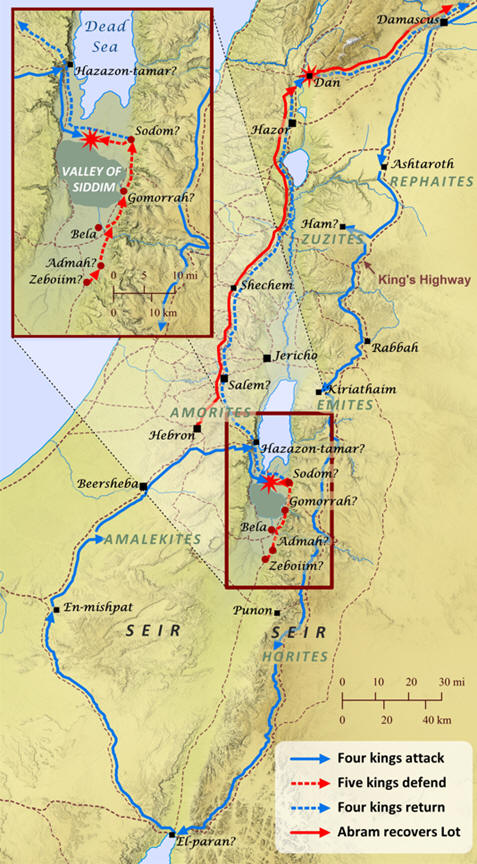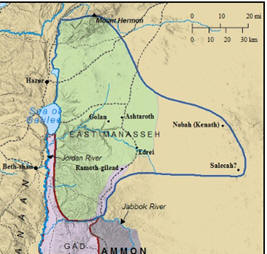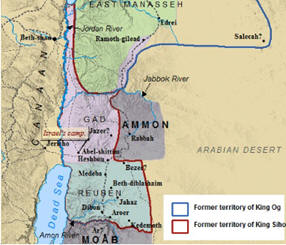For those not familiar with the Battle at the Valley of Siddim I recommend jumping to the summary at the bottom of this chapter/page then come back to read actual scripture Chapter 14. I also provide additional text for the 'Giants' Rephaims and other topics pertinent to this chapter.
Genesis 14
1Now it came to pass in the days of
Amraphel the king of Shinar,
Arioch the king of Ellasar,
Chedorlaomer the king of Elam, and
Tidal the king of Goyim.
2That they waged war with
Bera the king of Sodom and with
Birsha the king of Gomorrah,
Shineab the king of Admah, and
Shemeber the king of Zeboiim, and
the king of Bela, which is Zoar.
3All these joined in the
valley of Siddim, which is the Dead Sea.
4For twelve years they
served Chedorlaomer, and for
thirteen years they rebelled.
5And in the fourteenth year, Chedorlaomer came, and the
kings who were with him, and they smote the
Rephaim in Ashteroth Karnaim and the
Zuzim in Ham, and the
Emim in Shaveh Kiriathaim.
6And the
Horites in their mountain Seir, until the
plain of Paran, which is alongside the desert.
7And they returned and came to
Ein Mishpat, which is Kadesh, and they smote the entire field of the
Amalekites, and also the
Amorites who dwelt in Hazezon Tamar.
8And the king of Sodom and the king of Gomorrah and the
king of Admah and the king of Zeboiim, and the king of Bela, which
is Zoar, came forth, and they engaged them in battle in the valley
of Siddim.
9With Chedorlaomer the king of Elam and Tidal the king of
Goyim and Amraphel the king of Shinar and Arioch the king of
Ellasar, four kings against the five.
10Now the valley of Siddim was [composed of] many clay
pits, and the kings of Sodom and Gomorrah fled and they fell there,
and the survivors fled to a mountain.
11And they took all the possessions of Sodom and Gomorrah
and all their food, and they departed.
12And they took Lot and his possessions, the son of
Abram's brother, and they departed, and he was living in Sodom.
13And the fugitive came and he told Abram the Hebrew, and
he was living in the plain
of Mamre the Amorite, the brother of Eshkol and the brother of Aner, who
were Abram's confederates.
14And Abram heard that his kinsman had been taken captive,
and he armed his trained men, those born in his house, three hundred
and eighteen, and he pursued [them] until Dan.
15And he divided himself against them at night, he and his
servants, and smote them, and pursued them until
Hobah, which is to the left of Damascus.
16And he restored all the possessions, and also Lot his
brother and his possessions he restored, and also the women and the
people.
17And the king of Sodom came out toward him, after his
return from smiting Chedorlaomer and the kings who were with him, to
the valley of Shaveh, which is the valley of the king.
18And
Malchizedek the king of Salem brought out bread and wine, and he
was a priest to the
Most High God.
19And he blessed him, and he said, ‘Blessed be Abram to
the Most High God, Who possesses heaven and earth.
20And blessed be the Most High God, Who has delivered your
adversaries into your hand,’ and he gave him a tithe from all.
21And the king of Sodom said to Abram, ‘Give me the souls,
and the possessions take for yourself.’
22And Abram said to the king of Sodom, ‘I raise my hand to
the Lord, the Most High God, Who possesses heaven and earth.
23Neither from a thread to a shoe strap, nor will I take
from whatever is yours, that you should not say, 'I have made Abram
wealthy.'
24Exclusive of what the lads ate, and the share of the men
who went with me; Aner, Eshkol, and Mamre they shall take their
share.’
_____________________________________________
Summary of Genesis 14 "The Battle at the Valley of Siddim"
Original content and maps taken from highly recommended reading: https://biblemapper.com/blog/index.php/2021/07/19/the-battle-at-the-valley-of-siddim/
For 12 years the four kings of an eastern group of city-states, Amraphel the king of Shinar (Babylon), Arioch the king of Ellasar (Larsa/Ur area), Chedorlaomer the king of Elam (Persia), and Tidal the king of Goyim (unknown, possibly northeast of Sumer Persia)- led by Chedorlaomer- ruled over the city-states in and around Canaan. Five king cities grouped around the south end of the Dead Sea, Bera the king of Sodom, Birsha the king of Gomorrah, Shineab the king of Admah, Shemeber the king of Zeboiim, and the king of Bela, which is Zoar, all (5 kings) ally and rebel against Chedorlaomer and his allies (the four kings). A year later, Chedorlaomer (the four kings of ‘Canaan’) arrive in the region to reestablish their rule over the five kings (East/Transjordan) side Dead Sea. Following a southerly route along a line east of the Jordan River, the four kings defeat every city and king and people group in their path all the way to the edge of Canaan's southern wilderness. This list includes the Rephaim in Ashteroth Karnaim (East of Sea Galilea land of Og), the Zuzim in Ham (Ammon which lies south Land Og north Dead Sea on east side Jordan), Moab (east Dead Sea), and the Emim in Shaveh Kiriathaim (east Dead Sea), And the Horites in their mountain Seir (between Dead Sea and the Gulf of Aqaba) northwestern region of Edom), until the plain of Paran (Midian across Gulf of Aqaba from Sinai), which is alongside the desert, And they returned and came to Ein Mishpat, which is Kadesh and they smote the entire field of the Amalekites (Northwest Sinai), and also the Amorites who dwelt in Hazezon Tamar (south west of Dead Sea) which is also the Valley of Siddim. There the five kings of Sodom, Gomorrah, Admah, Zeboiim, and Zoar gathered their forces to take their stand against the four kings. The battle, apparently, doesn't last long. The five kings are defeated and their forces flee. The enemy raiders descend on Sodom and loot all of their possessions. The four kings of the east under Chedorlaomer capture Abram's nephew Lot who was living in Sodom at the time, where he had moved following a quarrel and separating from Abram to prevent their growing families from competing for resources. A survivor of the carnage comes and tells Abram what has happened. Without hesitation, Abram- who is more than seventy-five years old - gathers 318 servants trained for battle, along with three Amorite brothers, Mamre, Eshkol and Aner, who were his allies. Together they chase down the eastern armies, finally catching up to them in Dan at the (very far) northern edge of Canaan. What could Abram's small army do against this force that had just conquered all in their path, all the giants, without a loss? With God's help, they could win. They do so in one night, using clever tactics and retrieve Lot and everything else the eastern kings had plundered along the way. As Abram returns home, two kings come out to meet him. One is the king of Sodom who survived the battle. The other is a mysterious figure identified as Melchizedek, the king of Salem and priest of God Most High who brings Abram bread and wine and a blessing from God. Abram immediately responds by giving ten percent of all the plunder to God's priest.

Rephaim
Original content and map taken in part from https://www.israel-a-history-of.com/rephaim.html
Rephaim along with Zuzim (or Zamzummin),
Emim, and Anakim were diluted genetically from the 1st generation
Nephilim who existed before the flood so their strength was not on
par with the Nephilim. Og, king of Bashon and Sihon, king of Gilead,
was said to have been the last of the Rephaim. They [Rephaim] lived
throughout the land of Canaan, and were regarded by God as wicked.
Many scholars claim Canaan was a land of giants leading up to, and
sometime after, Abraham's arrival. Perhaps this was God's reason for
calling Abraham to the land of Canaan. Even 500 years later Moses'
spies reported back they [Rephaim] ‘appeared like grasshoppers’
compared to the locals. According to this doctrine God would use the
Israelites to destroy the remaining Nephilim influence which
dominated Canaan. This theory would be in accordance with the
passage from Deuteronomy 9 where God says its not because of
Israel's righteousness He is giving them the land. Instead, it was
due to the wickedness of its current inhabitants, which God saw
necessary to eliminate. Critics of the Bible have often pointed to
the Old Testament God as being a God of wrath, murder, and genocide
and his treatment of the Canaanites has been a source of controversy
however this theory makes sense given God's necessity in destroying
all Canaanites lest some more Nephilim slip through the cracks.
 |
 |
|
|
|